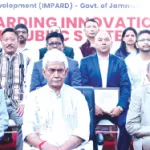Healthcare delivery is a huge, multifaceted, and complicated system with a high-stake product- the health. For improving and upgrading any system, a constant process of change is required.
My viewpoint that the autonomy of medical institutions is highly important is debatable for several reasons. While this piece will shed light upon multiple medical dimensions governing this philosophy and multi-pronged strategies from patient perspective and finally will deliberate upon the role of Heads of medical institutions, Director, Principal as visionary healthcare leadership. Focus will be on the problem as well as its solution. Here are some key points to consider what autonomy meant to me as a healthcare Quality professional.
Top Priority is Patient Care and Safety
Autonomous medical institutions can make decisions and implement policies that prioritize patient care and safety. They can develop their own guidelines, protocols, and quality control measures to ensure the best possible outcomes for patients. Autonomy allows medical institutions to adapt and respond to specific local needs and circumstances, tailoring healthcare services to their patient population.
Flexibility and Innovation
Autonomy enables medical institutions to be more flexible and responsive to changing healthcare needs and advancements. They can adapt their services, introduce new treatments, and implement innovative approaches without being overly restricted by external regulations or bureaucratic processes. This fosters a culture of continuous improvement, exploration, and research within the institution.
Professional Judgment
Autonomy empowers healthcare professionals to exercise their expertise and professional judgment. Physicians, nurses, and other healthcare providers can make decisions based on their knowledge, experience, and individual patient needs. This freedom is essential for delivering personalized and patient-centred care, allowing medical professionals to choose the most appropriate treatment options and interventions.
Accountability and Governance
Autonomy is closely tied to accountability and effective governance. While medical institutions should have autonomy, they must also operate within a framework of responsibility and oversight. External bodies and regulatory authorities can set standards and monitor performance to ensure quality, ethical practices, and patient rights are upheld. Striking the right balance between autonomy and accountability is crucial.
Academic and Research Advancement
Autonomous medical institutions often serve as centres for medical education, training, and research. They have the freedom to engage in academic collaborations, pursue scientific discoveries, and contribute to medical advancements. Autonomy allows for the creation of environments that foster innovation, attract talented researchers and educators, and promote the dissemination of knowledge.
Public Trust and Confidence
The autonomy of medical institutions is closely linked to public trust and confidence in the healthcare system. When institutions are seen as independent and capable of making decisions in the best interest of patients, it enhances trust among the public. Trust is essential for patients to seek medical care, comply with treatment plans, and participate in research initiatives.
The purpose of giving financial and administrative powers to the heads of autonomous medical institutions is to improve the efficiency of these institutions and evolve an efficient healthcare system by removing flaws in its delivery system, if it is not happening, the State intervenes. Traits of visionary leadership in Director, Principal etc are must for improving administrative and regulatory culture of healthcare organizations. It is important to note that while autonomy is crucial, it should be balanced with appropriate regulation and oversight to ensure evidence-based best practice clinical guidelines, pathways and protocols for common diseases are made and they set guidelines for the whole state on patient safety, ethical practices, and adherence to quality standards.
What Makes a Good Hospital and leader?
Have independent assessment on QPS standards, like getting accreditation certification from NABH- quality council of India won’t allow institutions to become the hub of internal bickering, lobbyism. If a culture of favoritism and nepotism prevails over meritocracy –you lose direction. We know that several previous healthcare systems have not been that successful in our state. I’m sure before any policy decision is made all the stakeholders must have sat together with an open mind and negotiate whatever is primarily in the best interest of patients and the system implemented with modifications to help the public hospitals to become cost effective, respond quickly, manage resources efficiently and offer their services meritoriously.
In today’s fast-paced world, effective leadership is crucial for healthcare organizational success. It’s about inspiring and guiding others towards a common goal of improving patient care, while management focuses on organizing and coordinating tasks. Both are essential for a well-functioning team or organization. Good Leaders lead by example, listen to their staff as team members, and empower them to reach their full potential never encourage any toxic or fear-based culture instead inculcate team work to strengthen institutional mission to serve patients and improve patient care by fostering a positive and inclusive work environment, we can create a culture of growth and success.
Trust is the cornerstone of healthcare delivery
By delegating tasks and responsibilities to capable team members not “yes men”, you demonstrate your trust in their abilities, fostering a sense of empowerment and ownership of the bedrock for collaboration and success. Together, you can achieve remarkable results. Empowered teamwork is the ingredient of a successful visionary leader. Delegation isn’t just about lightening your workload—it’s about unleashing the collective potential of your team. By distributing tasks strategically, you empower individuals to showcase their strengths, share responsibilities, collaborate effectively, and bring diverse perspectives to the table.
Non-visionary thinking contributes to the lack of strategic direction
Leaders who become managers often fail to provide a clear and compelling strategic direction for the organization. Without a clear vision, the organization may lose its sense of purpose and fail to adapt to changing healthcare trends and demands. Clinging to traditional practices and outdated models, the resistance of non-visionary leaders can hinder the organization’s ability to innovate and respond effectively to changes, causing them to fall behind. This can lead to a loss of autonomy as the organization becomes reactive rather than proactive in decision-making.
Toxic atmosphere
When leading by fear and intimidation is the norm, people working in this environment go into survival mode. They are no longer interested in the patient’s outcome and experience, the quality of the service rendered to the. Instead, they’re concerned with keeping their jobs and not stepping on toes.
Poor Decision-Making
Non-visionary leaders may make poor decisions or lack the ability to make timely decisions. This can result in missed opportunities or ineffective resource allocation, undermining the organization’s autonomy and competitiveness. Without strong decision-making, the organization may become stagnant and lose its ability to navigate the complex healthcare landscape.
Ineffective Communication
Communication plays a vital role in maintaining autonomy within healthcare organizations. Non-visionary leaders may struggle to effectively communicate the organization’s mission, goals, and strategies to stakeholders, including staff, patients, and external partners. This lack of communication exists in many healthcare institutions today where communication is stagnated, silos are the order of the day, employees are not participants of development and institution head has a vested interest in building a bureaucracy to protect his/her status quo and keep their jobs, even though this isn’t necessarily in the best interests of the institution. It’s not good for institutional professional development as it can lead to misunderstandings, reduced trust, and diminished autonomy as stakeholders become disconnected from the organization’s vision.
Lack of Innovation and Adaptability
We all have maps that chart our paths, define our boundaries, and dictate our destinations, but these can be redrawn and remapped as we explore. Autonomous healthcare organizations need to be at the forefront of innovation and adapt quickly to changes in the industry. Non-visionary leaders may stifle innovation by discouraging creative thinking, failing to invest in research and development, or maintaining rigid hierarchies that discourage collaboration. As a result, the institution may lose its ability to lead in a rapidly evolving healthcare landscape and become dependent on external guidance or regulations.
Conclusion
In summary, non-visionary leaders can contribute to the loss of autonomous status in healthcare organizations by failing to provide strategic direction, resisting change, making poor decisions, ineffective communication, and stifling innovation and adaptability. It is crucial for healthcare organizations to have chief executives as leaders who can inspire a clear vision, promote innovation, and navigate the challenges of the industry to maintain their autonomy.
(The Author is a Certified Qualified Professional in Quality Healthcare Policy Planning and has worked as Director Total Quality management, Clinical auditor & Team leader with many national and international accreditation Bodies like JCI- CBAH_ NABH: GE healthcare international, Academy of Hospital administration can be reached at [email protected])





